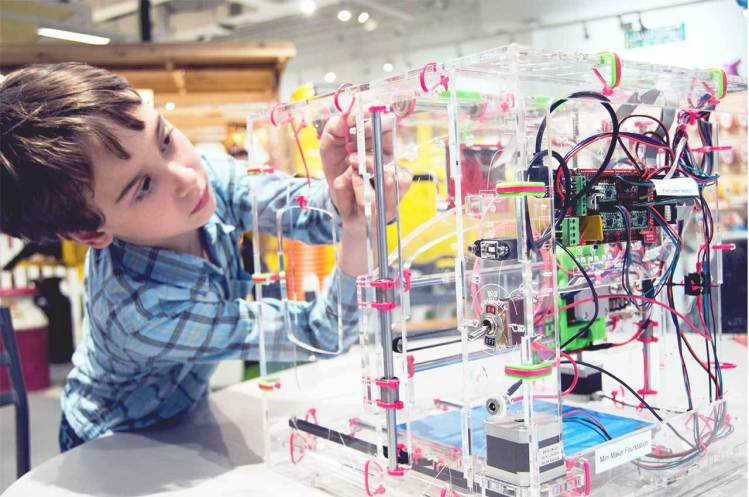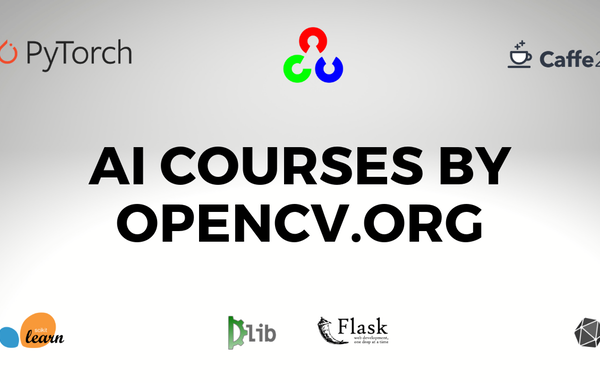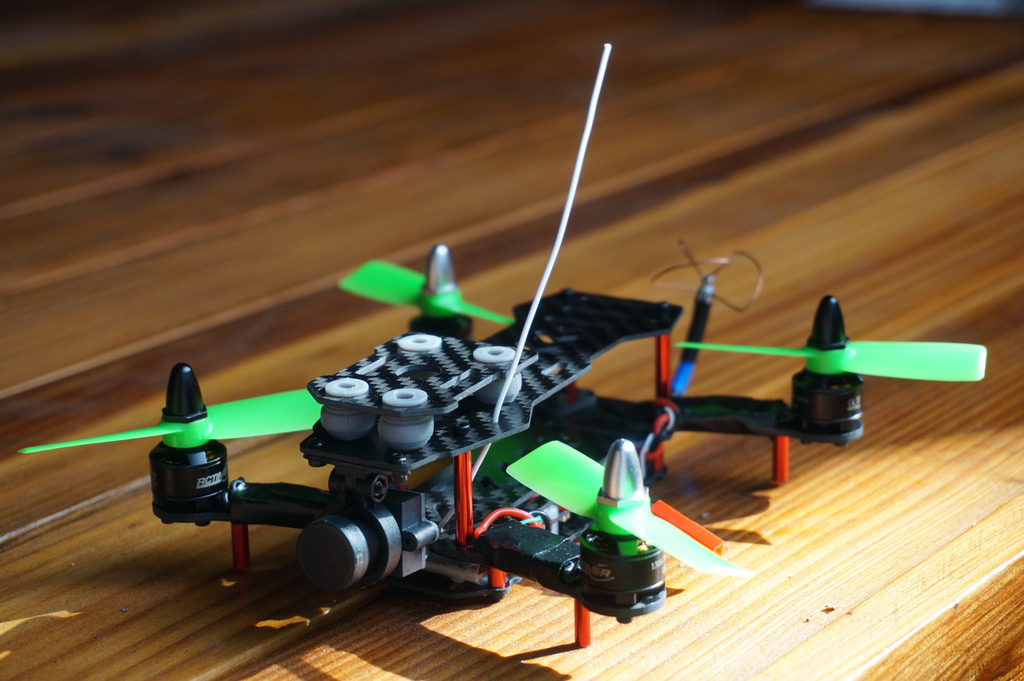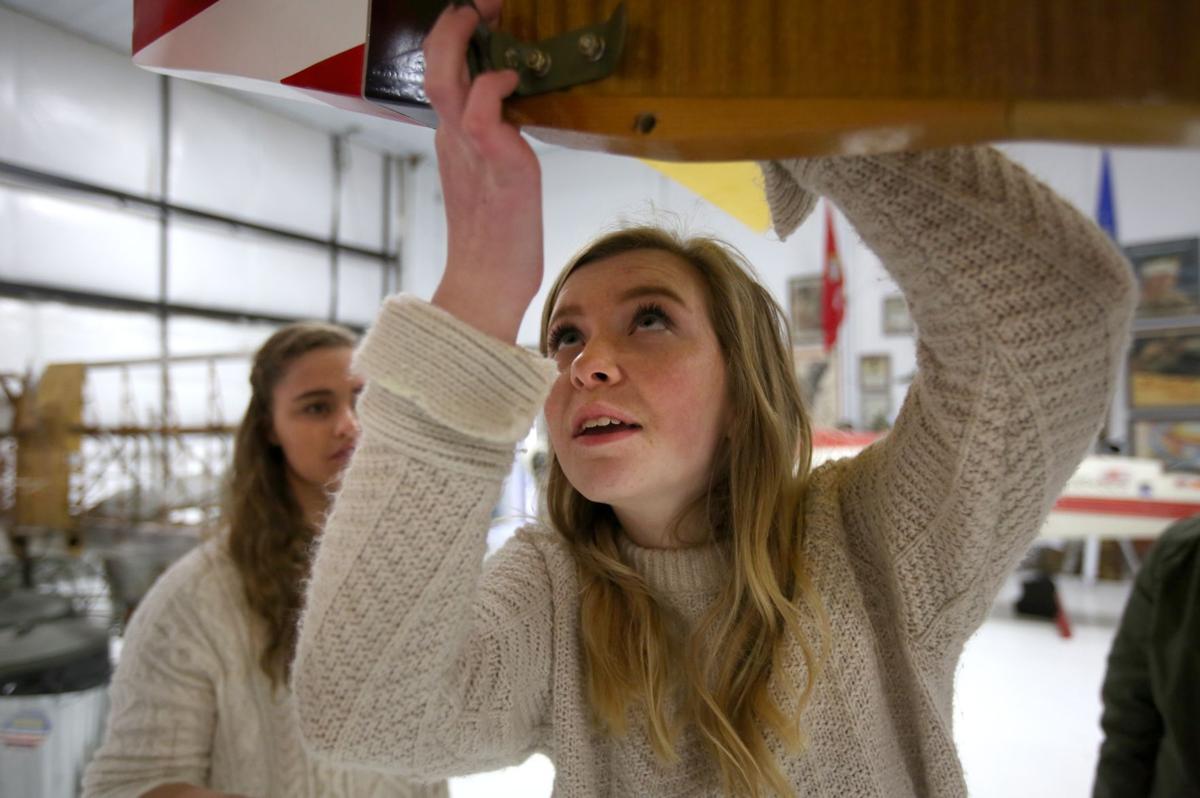Like so many who live in the sciences, I am fascinated by all things new, unknown, or barely discovered. I think some people just have this innate sense of a continued drive to understand, to improve our awareness and knowledge in the world.
Yet for many, the financial or temporal obligations of higher education aren’t possible to accept. Sure, there is night school, online correspondence etc, and these frameworks are excellent sources of gaining credentials, and of accessing new opportunities in a career. But what if I simply want to learn a bit about making parts? What if I want to build a little trinket of electronics, or to learn a little bit about optics? Today, this concise/iterative form of learning is available to everyone, yet only a few I interact with seem to exploit it’s full potential. It’s the way I’ve learned almost everything I know and use today. It does have downsides, but these can be filled with proper guidance. I would call this form of learning “Project-based” in nature. So, how does one attend such a lesson?

Step 1: Take on a project in the field of interest
Let’s say that, like me you have an interest or a curiosity on how machines move. You’ve seen a 3-D printer, or maybe a robot, or a CNC machine, and wondered, “how does the table top move, what drives it? How does it “know” where it is?” All good questions of course! Now, I had these questions, and I never truly was able to answer them until I embarked on my first CNC construction project. This began as a kick-starter investment, and probably had a total cost of ~ $350 by the time I was done. It took 2 months or so of work to finish it completely. Spending a few hours here and there to construct it. From there, I tinkered and modified a bit, and finally, after several months of use, I ended up stripping it down to use for other projects. Now, numerous issues and limitations popped up during this process, and I also realized I was left with several questions. Which brings us to the next level of learning.
Step 2: Learn from the Experts
Some of the questions which gnawed on my brain at the end of this build were:
- Was this machine actually capable of milling aluminum?
- Why did the speed seem so slow?
- Did I need liquid cutting fluid all the time?
- How come these tiny dremel end-mills kept breaking?
- What was the best GCODE generator to use?
These are questions which come not from the top level of a neophyte, but from a marginally deeper question of the enthusiast with some minimal experience. I moved from the neophyte to the enthusiast when I took on the project. I now had a surface level understanding of what questions to even ask! Not only that, but my ears itched for the answer. I HAD TO UNDERSTAND these answers, because my lack of knowledge was killing me, and affecting my understanding as to what this little machine could do! So I turned to people I know in the microscopy automation industry, gents like Chris Ballard from Sutter, John Zemek from ASI, and during the course of other work, would ask things like, “Hey so what exactly do you do with your machines to compensate for backlash?” Now here’s the fun part – no-one EVER denies an opportunity to share their expertise when prompted! So while I absorbed everything they had to teach, they were happy to share and to receive an opportunity to deliver lessons and experiences gained from years of effort. These small interactions may have taken 10, or 15 minutes, but over time I accumulated a series of data points. Some things like, “well, we always use fluid because we are cutting so fast” allowed me to understand that speed impacted heat to a greater degree than I had assumed, prompting me to search down google eggs like this speed & feed calculator. Other times, I’d learn objective known facts like Chris stating, “It’s hard to beat mass, when it comes to CNC, and microscopes for that matter, the heavier the better. ” Now such a statement seems simple, but because I had the background of watching my tiny machine struggle to cut, and had the framework of knowledge for that statement to fit, I quickly was able to understand the why behind the fact, which allowed me to cement a better understanding of what this meant for such machines. Vibration, strength, heat, inertia, it was all making sense.

Step 3: Take the next class
How to proceed? Simple: Build a machine that supported my next level of learning! In this case, it was a used RF-45 geared head mill. Armed with my understanding of how motors drove my current CNC, I snagged a used RF45, and designed my own CNC conversion for it. My design was additive, meaning that even if it completely failed, I could revert back to owning a manual mill – and who doesn’t want a milling machine? 🙂 So the next level of learning, the next class, had begun. Through it I learned my motors weren’t strong enough, my motor drivers were not high enough current and too slow, I had to account for additional backlash on the bigger machine, and so the journey continued. I still use the results from that machine for small projects today. The experience gained during the project has been too enormous to measure as I’ve applied it to things like, “hey, you can’t make a box with square inside corners, because all end mills are round, so how will it be cut?”

Step 4: The finals Exam
How do I know I’ve gained requisite knowledge in a field? The answer is, I never have. At each level of learning I’ve discovered new and more interesting aspects of a field. Liner encoding, DRO’s, automated tool changing heads, variable speed control GCODE, a litany of CAM generators, new 3 phase motors and controller options. So when is learning a field enough? I don’t think there is an upper limit. And this is the most important principle in my humble opinion. Those of us given this gift of curiosity have an obligation to leverage it. In an era in which Khan Academy can teach you trig for free, there is no excuse to stay stagnant. More importantly, I have watched several colleagues declare an end of learning, and subsequently become irrelevant. From, “I don’t do email” to “I can’t understand programming”, these people made the choice to stop.
And the world kept going.
And they were left behind, no longer useful to the community they lived or worked in. So whether it’s art, philosophy, religion, sports, outdoors, history, science, or just learning about the lives of others, we must never accept a point at which we believe, “I have arrived”. And so what is the final exam? Well, it’s likely comfort. Are you comfortable in your work? In your technical experience? Then get uncomfortable. Engage in that arena you were scared to try. Try out Jiu-Jitsu even if you’re scared. Order that 3-D printer kit, even if you don’t have time to build it. Download Python and follow some online tutorials, even if you never use it again. Stay off balance. If you are comfortable today, you failed the exam. The good news is that you have another opportunity to take the test, and learn something new, staring today.
-Austin
